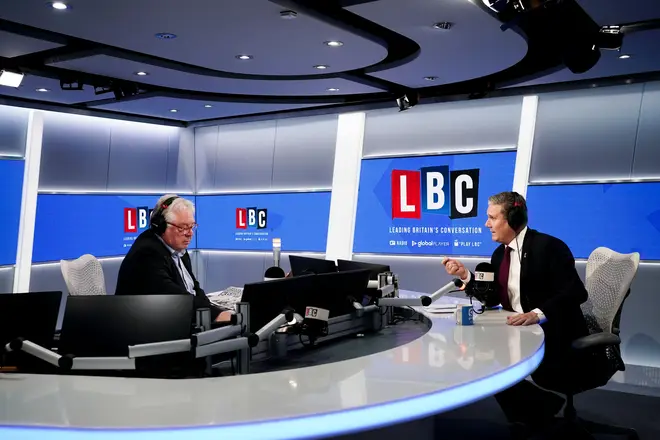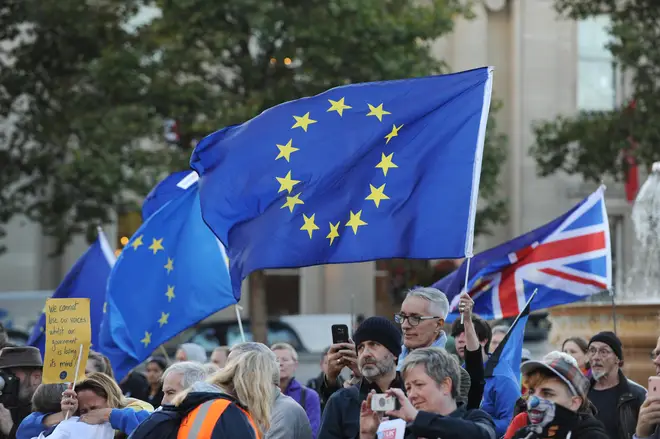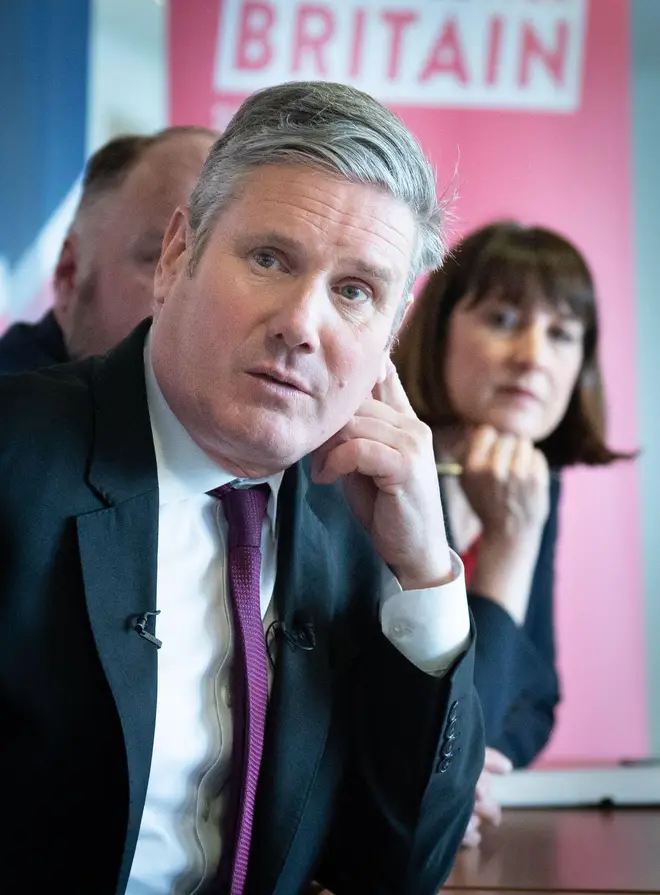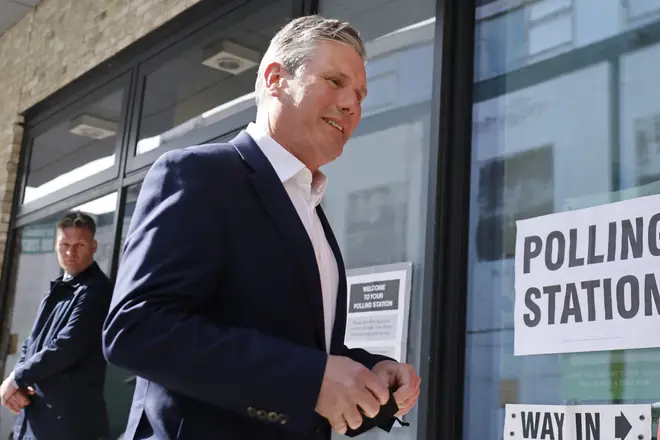
Iain Dale 7pm - 10pm
15 May 2023, 09:38 | Updated: 15 May 2023, 16:15

Keir Starmer makes the case for giving 16-year-olds the vote
It "feels wrong" that millions of EU citizens can't vote in the UK's general elections, Sir Keir Starmer has told LBC.
The Labour leader said it was not right that someone could contribute to the economy and communities for 30 years and not have a say in national votes.
But it has triggered anger from the Tories who accused him of trying to rig future contests.
Speaking on LBC's Nick Ferrari at Breakfast, Sir Keir said Labour was "looking at some of the voting issues" and "there's no settled policy here".
"As you know, EU nationals can vote in local elections, Commonwealth citizens can vote in all elections, and so we're looking at that," he said.
Watch Call Keir again in full on Global Player

"The thinking behind it is if someone's been here say 10, 20, 30 years, contributing to this economy, contributing to the community, they ought to be able to vote.
"Let me bring it alive - I've knocked on a lot of doors in the last few years, and you go to doors sometimes in a general election and you're met with someone who says 'look, I'm an EU citizen, I've been living here for 30 years, I'm married to a Brit.
"'My kids were raised and brought up here, they're now working in the UK, we're all working in lots of community projects but I can't vote.'
"That feels wrong, and something ought to be done about it."
He admitted it was a "fair point" that the same courtesy has not been extended to Brits living in the EU but does not believe it is common sense to keep Europeans being barred from national polls.
Labour is also weighing up giving the vote to 16 and 17-year-olds.
"They can have babies, they can work, they can join the army, so there are big things you can do at 16 and 17," Sir Keir.
"And again, it’s not such an outlandish idea. In Wales it already happens, in Scotland it already happens.
"So we're looking at voting… they're not policy, we're just looking at them."

But the plans sparked accusations from Conservative Party Chairman Greg Hands that Labour is "laying the groundwork to drag the UK back into the EU by stealth".
Speaking to The Telegraph, he said: "This is an attempt to rig the electorate to rejoin the EU.
"The right to vote in parliamentary elections and choose the next UK Government is rightly restricted to British citizens and those with the closest historical links to our country.
Read more: Turkey election 'highly likely' to go to run-off as Erdogan fights for political life
Read more: Alastair Campbell says Labour right to consider handing 16 and 17-year-olds vote despite bias fears
"No other EU country allows EU citizens who are not their nationals to vote in parliamentary elections."
Two of his predecessors, Liam Fox and Nadhim Zahawi, echoed the criticism.
Labour insisted on Sunday that such proposals were part of the policy process, and not a final manifesto plan.

A shift in the electorate could significantly impact Tory MPs in London and possibly even unseat Boris Johnson from his Uxbridge and South Ruislip constituency, should he stand for Parliament in future elections.
Polling expert Prof Sir John Curtice said that young people and migrants were more likely to support Labour.
"The presumption we all have, rightly or wrongly, is that they're more likely to be opposed to Brexit, and therefore less likely to vote for the Conservative Party," he said.

"London is already so overwhelmingly Labour – there are some Tory constituencies left, but not that many of them, and they are the ones that will be particularly on the line."
Prof Curtis added that the change "might help contribute to the downfall of Boris" in his constituency in west London, which has a large population of migrants, if he remains an MP.
Under the proposals, migrants living permanently and paying tax in the UK would have the right to cast their ballot in general elections for the first time.
It's expected the move would affect around 3.4 million EU citizens in Britain, who already meet the requirements to gain "settled status".

A total of 2.6 million have already achieved "pre-settled" status and could receive voting rights in the future.
Settled EU migrants are already able to cast their vote in some elections, including for the Welsh and Scottish parliaments, local councils, and police and crime commissioners, while sixteen and 17-year-olds have had the right to vote local and devolved assembly elections in Scotland and Wales since 2016 and 2020, respectively.
Irish and Commonwealth nationals have the right to vote in general elections provided they are UK residents and register cast their vote.
It's thought the proposed extension of the vote is could be the biggest expansion in the size of the franchise since Representation of the People (Equal Franchise) Act gave women electoral equality with men in 1928.